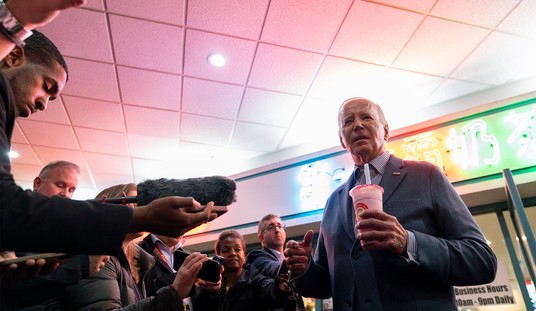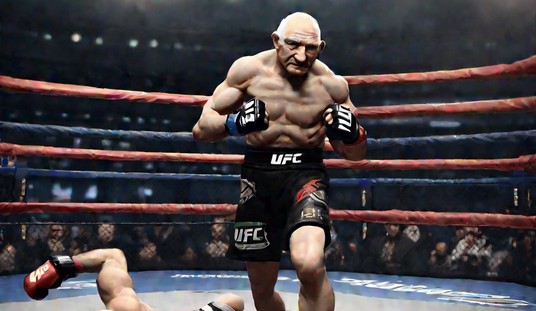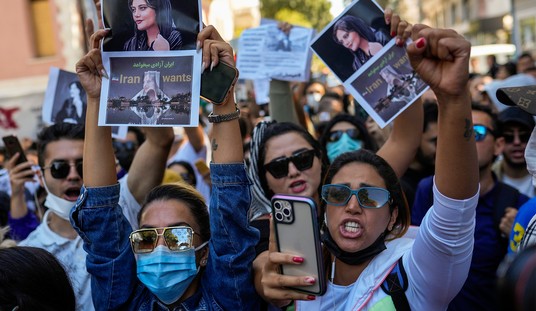Editor’s Note: “Politics is downstream from culture” has been one of PJ Media’s mantras in response to the election. It’s with this direction in mind that I’ve invited my friend, the courageous writer-scholar-activist Robert Spencer, to contribute regularly to PJ Lifestyle. Since May of last year Robert has written a weekly article for PJM, bringing his deep understanding of Islam and Jihadist terrorism to analyze current events. Robert is an exemplary polemicist, but the time has come to reach out and bring his ideas to new readers. And so we introduce today a new Friday feature: Jazz and Islam. Each week Robert will explore the culture, history, values, and philosophy of both, some weeks focusing on Islam, others more on jazz, and often, as with today’s article, a juxtaposition of both. Reader feedback and suggestions are very much encouraged as we continue to develop this new feature.
– David Swindle, PJ Lifestyle Editor
Ultimately, the war between the forces of jihad and the free world is a conflict between individualism and collectivism. Nothing shows that more vividly than each side’s attitude toward music.
“I cannot listen much to music,” Lenin once said. “It excites my nerves. I feel like talking nonsense and caressing people who, living in such a filthy hell, can create such beauty. Because today one must not caress anyone; they will bite off your hand. One must break heads, pitilessly break heads, even if, ideally, we are opposed to all violence.”
Another totalitarian man of peace, Muhammad, is quoted as saying: “Allah Mighty and Majestic sent me as a guidance and mercy to believers and commanded me to do away with musical instruments, flutes, strings, crucifixes, and the affair of the pre-Islamic period of ignorance.”
Musical instruments, flutes, strings, and crucifixes! This command came with a warning: Muhammad is also supposed to have said that “on the Day of Resurrection, Allah will pour molten lead into the ears of whoever sits listening to a songstress,” for “song makes hypocrisy grow in the heart as water does herbage.” He warned that the Muslim community would one day experience times of tribulation, featuring “the swallowing up of some people by the earth, metamorphosis of some into animals, and being rained upon with stones.”
When his followers asked him when this would be, he answered: “When songstresses and musical instruments appear and wine is held to be lawful.” There would come a dark day, he said, when even some Muslims would “hold fornication, silk, wine, and musical instruments to be lawful.” (‘Umdat al-Salik r40.0)
It isn’t hard to see why the creators of martial polities and new, aggressively expansionistic political and societal systems such as Lenin and Muhammad would disdain music. For music is an expression of the human spirit – the very thing that these totalitarians were trying to master. And no music so fully expresses the anti-totalitarian impulse, and the dignity and value of every human person, than does jazz.
https://www.youtube.com/watch?v=4utAdJV4d5s
For jazz is not jazz if it doesn’t contain a considerable element of improvisation, and improvisation is an expression of the individual soul par excellence. A musician who is improvising has nothing to fall back on except his own inner reservoir, and that is why jazz at its best is so immediate, so personal, and so affecting. Miles Davis and John Coltrane improvising on the same piece couldn’t sound more different from one another, not just because one plays trumpet and the other tenor sax, but because they are so very different from one another as human beings, and in their improvisations, one can hear into their very hearts and souls. One may learn their solos note-for-note (as I did back in the pre-9/11 days when I played a bit of saxophone myself), but this is just a musical exercise; the music itself can be copied but never replicated, for their individual expression is inherent and essential to it.
Totalitarian collectivists hate that individual expression. They are only interested in the individual not for the expression of his own soul, but as a cog to fit into their great machine that is marching toward the worker’s paradise, or the Sharia state, or whatever the outcome of their reign of terror is called today. As such, jazz music, a unique product of the nation that has enabled a flowering of the individual spirit unparalleled in human history, is a rebuke to collectivism, and a defiant and joyful reassertion of the one thing that totalitarians fear most: the individual.
Now wait a minute, you will say: what about all those Muslim jazz musicians? There have certainly been a lot of them. The formidable drummer and bandleader Art Blakey was known to his friends as “Bu,” short for Abdullah ibn Buhaina, his Muslim name. Ahmad Jamal, Sahib Shihab, Idrees Suleiman, Yusef Lateef, Rashied Ali – the list goes on and on. The tenor and soprano saxophonist Pharoah Sanders actually titled his marvelous album Summun Bukmun Umyun after passages of the Qur’an that say that the unbelievers are “deaf, dumb and blind” (summun, bukmun, umyun, 2:18 and 2:171). The liner notes say that the album’s purpose is pure dawah (Islamic proselytizing): “This album is predicated on spiritual truths and to the future enlightenment of El-Kafirun or The Rejectors of Faith (non-believers).”
https://www.youtube.com/watch?v=cO3BSEZ3KQE
Yet those Muslims who have recently trashed music stores and brutalized musicians in Mali, Pakistan, Afghanistan, and elsewhere would dispute the very idea that such music – and particularly such joyful, exuberant, and strikingly individual, original music – should be or could be an instrument of dawah. And they would do so with good reason. Those who constructed the legends of the prophet of Islam knew what they were about when they depicted him forbidding music. They knew that music would not serve the purposes of their martial, expansionist society, for it would blunt the fighting edge of the mujahedin. They knew, as Lenin would come to know centuries later, that the just society on this earth could only be established by means of a reign of terror: “One must break heads, pitilessly break heads.”
As Muhammad himself put it, “I have been made victorious through terror” (Bukhari 4.52.220). That’s the core reason why Islamic law is hostile to music. Music brings joy, and joy is the opposite of terror. It’s no wonder, then, that the Ayatollah Khomeini said: “There is no fun in Islam. There can be no fun and joy in whatever is serious.”
He probably wasn’t much of a jazz fan, either.
Updated: See Part 2 of Jazz and Islam:
5 Exhilirating Jazz Improvisations To Unshackle Your Spirit
Previously from Robert Spencer at PJ Lifestyle:









Join the conversation as a VIP Member